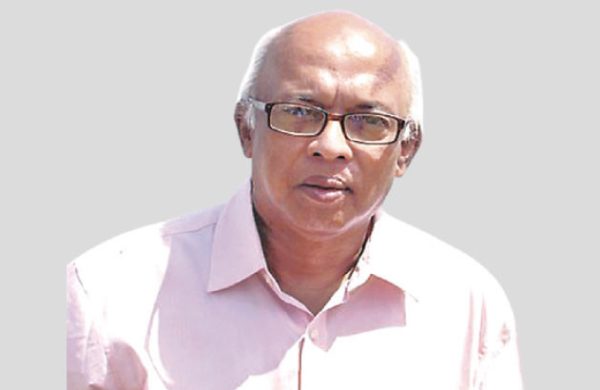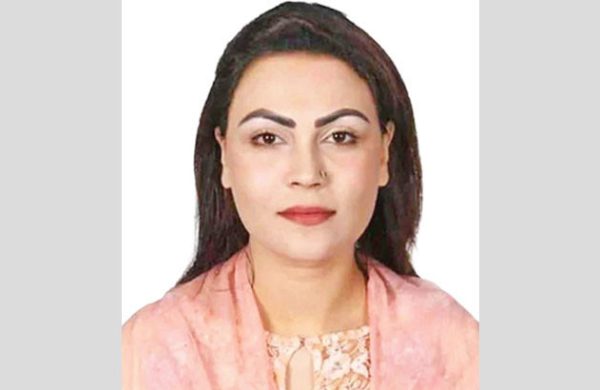The Full Plate of the PM’s New Press Secretary
- Update Time : Monday, June 3, 2024

—Syed Badrul Ahsan—
After days of speculation on social media about the appointment of a new Press Secretary to the Prime Minister, we now have a conclusive outcome. Nayeemul Islam Khan, the veteran journalist, is the new Press Secretary who will be part of the Prime Minister’s Office from here on. It will be at the pleasure of the head of government that he will carry out his new responsibilities.
It is not normal for statements or observations to be made on the office of Press Secretary to the Prime Minister or on the individual who holds the office.
But given that over the decades a fairly good number of Press Secretaries have come and gone without leaving a lasting and positive impression on the office, it becomes important for citizens to ask that the role of the Prime Minister’s media spokesperson be properly reflected and commented on.
The hope is that on Nayeemul Islam Khan’s watch it will be a re-energised Press Wing that we in the media will expect to emerge. Khan has been in the limelight for years through his writings and participation in media talk shows and has therefore a large number of followers, with of course a good number of detractors as well.
What is clearly of significance is that he assumes the job in a way his predecessors have not, namely, that he has been a prolific writer-cum-editor as well as public speaker. It is an advantage he will now be required to put to effective use.
The new Press Secretary will, in very broad terms, be expected to recast the Prime Minister’s Press Wing through making it the focal point of the dissemination of information to citizens. The office needs to be proactive, with its chief presiding over his staff in intellectual as well as practical ways.
The Press Secretary will be expected to slice the bureaucratic clutter out of the office and turn it into a wing which acts in the way a media organisation is expected to act, which is to stay in constant touch with journalists all across the country.
There are the instances before us of Press Secretaries in earlier times getting lost in bureaucratic alleys and by-lanes and happily staying there until their terms came to an end.
Their links with their colleagues in the various media organisations snapped to an extent that was regrettable at best and outrageous at worst. Some of Khan’s predecessors adopted ways of operating that were deeply disturbing for their media colleagues: they did not respond to calls that would have them facilitate a regular, productive interaction between the head of government and senior journalists.
The new Press Secretary ought to begin with a fresh new slate rather than work on the one left behind by others. He might begin through establishing contact with editors, senior journalists and opinion makers and reassuring them that on his watch relations between the PMO and the media will have a new, cooperative and constructive dimension.
Editors will want to speak to the Prime Minister, largely for the purposes of having her interviewed for their media organisations. The Press Secretary, being a journalist noted for activism, can do an excellent job in having the Prime Minister speak to editors and senior journalists from time to time in order to provide them with her take on national and global issues.
In these post-modern times when the media remain engaged in discussing and deciphering issues of public concern, the Press Secretary to the Prime Minister must ensure that he is the first individual at the PMO to meet the head of government early in the day in order to have the duties of his office planned out for the day.
It ought not to be his job to have handouts prepared by others to be disseminated by the Press Wing. The Press Secretary’s job is not to prepare or send out mere press releases to the media houses.
It is to ensure that all wings at the PMO, as and when required, will report to the Press Secretary and his team on developments and meetings. All decisions arising out of cabinet meetings, departmental conferences and seminars where the Prime Minister presides should be the prerogative of the Press Minister and his team for dissemination to citizens.
The current practice of senior bureaucrats rather than the Press Wing briefing the media on governmental decisions needs to be done away with. The new Press Secretary is in a position to bring about the change so necessary here.
For a modern-day Press Secretary, regular briefings with journalists covering the PMO will be an imperative. A hugely important task the new chief of the Press Wing will be required to carry out is to have the Prime Minister’s press conferences organised along lines that allow reporters to have primacy in placing questions to her, a system which should be a departure from the present unsettling practice of heads of media organisations dominating the show.
It is reporters who matter, for they are in fulltime touch with citizens across the country, soliciting people’s opinions on the worries that assail them. It is therefore reporters and not their organisational heads who must have unquestioned priority at prime ministerial press conferences at Ganobhaban.
A Press Secretary can remould the Press Wing so much so that his successors will feel obliged to maintain the system when their times come. Our expectation is that the new Press Secretary will, through reaching out to all media people — and that means across any partisan divide — will foster greater engagement between the PMO and the media.
Add to that the crucial thought of the Press Secretary playing a leading role in a drafting of prime ministerial speeches both at home and abroad. Prior to the Prime Minister’s interaction with the media, the Press Secretary should be in a position to zero in on the issues the head of government might be asked questions on and consult with her on the probable responses she could come up with.
Nayeemul Islam Khan will have a whole lot on his plate as he gets down to work. Yet his long experience as a working journalist should be according the Press Wing at the PMO a vibrant image of the good that can come about when purposeful and independent journalism works in close association with those in the corridors of power. The media matter. That is the theme which must now be followed at the PMO.
____________________________________
Syed Badrul Ahsan writes on politics, diplomacy and history



















